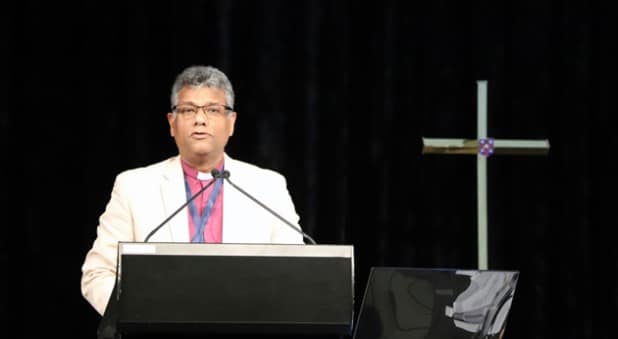
The motion, proposed by archbishop Kanishka Raffel with the help of the Conservative Sydney Diocese, attempted to reinforce the ‘traditional view’ of marriage being between men and women.
Currently, any of Australia’s Anglican Diocese are authorised to pronounce blessing rites on same-sex unions and two have done so in the past. However, the Sydney Diocese is widely open about its anti-LGBTQ+ sentiments.
Raffel’s main objective was to declare same-sex marriage as unlawful in the Anglican Church, with the motion: “The solemnisation of a marriage between a same-sex couple is contrary to the teaching of Christ and the faith, ritual, ceremonial and/or discipline of this church.”
Initial votes from the House of Laity and the House of Clergy were in overwhelming support of the statement, but it was eventually halted by The House of Bishops in a vote of 12-20.
Raffel has since criticised the House of Bishops for the decision, saying that he “deeply regretted” the vote to block the rejection of same-sex marriages.
The archbishop preemptively warned the Anglican members, claiming that if the “unremarkable” statement affirming traditional views of marriage didn’t pass, then the church would be “fundamentally awry.”
“Failing to make these affirmations today has left us in a perilous position, and no one should be mistaken about that,” the archbishop said.
The result has caused an age-old rift to re-open in churches across the country. The debate in the church became especially heated in 2017 after Australia voted to legalise gay marriage.
Tasmanian bishop Richard Condie expressed his disdain, saying “many people were visibly shocked”.
“There were tears and confusion in the room,” he added. “A number of orthodox bishops are concerned about the implications for our common life and work in the days ahead.”
The Sydney Diocese is opposed to gay marriage in all forms, having opposed decisions by archbishops in the past, including Perth’s female archbishop Kay Goldsworthy, to appoint a gay man as Precentor at a local Cathedral.
It has since released a statement further condemning the vote ,”noting with regret that on 11 May 2022, despite clear support from the majority of General Synod, the majority of the House of Bishops voted against Motion 20.3″.
“Petitioners humbly pray that Synod commits to praying that all members of the House of Bishops would clearly affirm and be united in their support for the teaching of Christ concerning marriage and the principles of marriage.”
